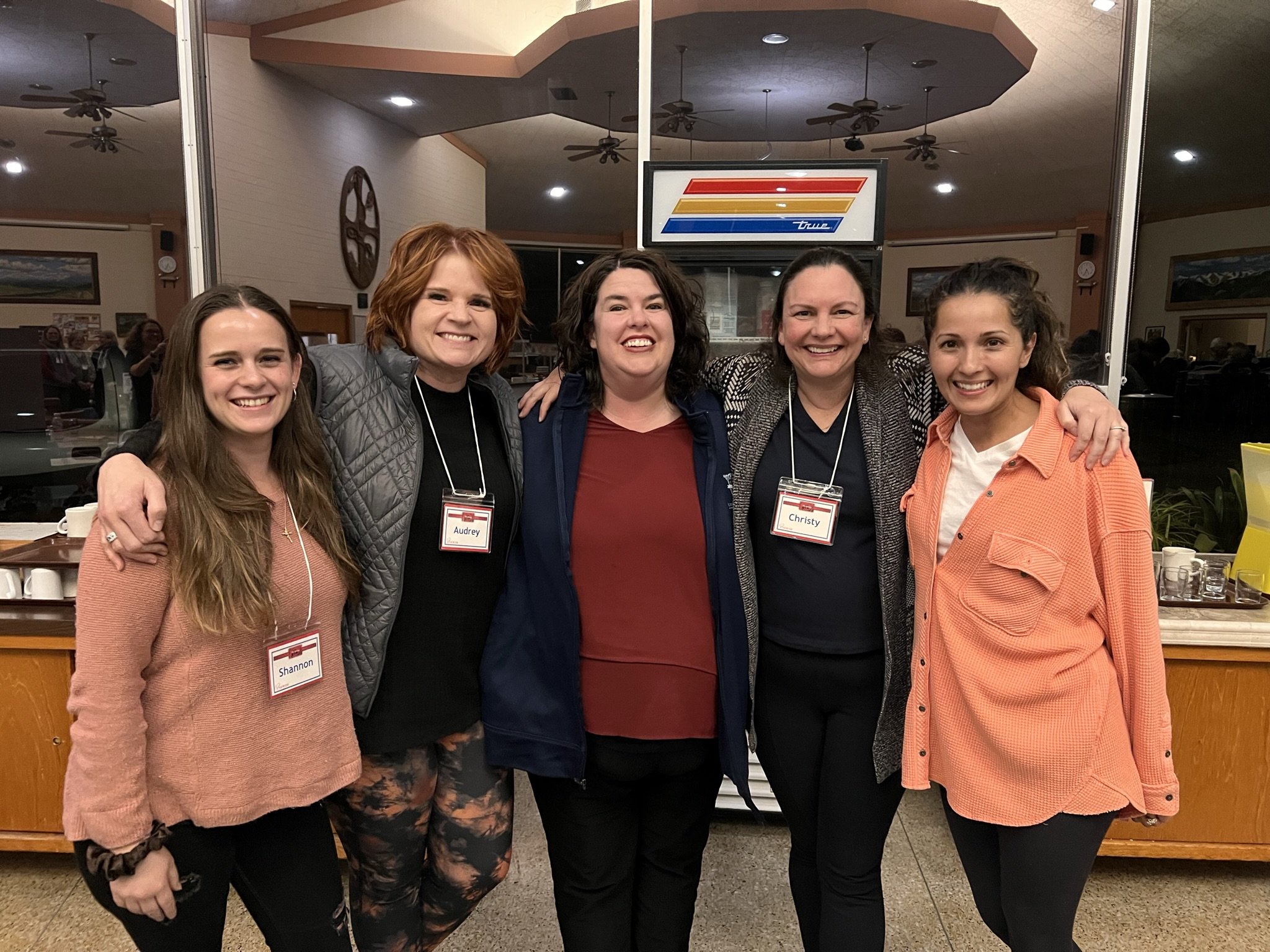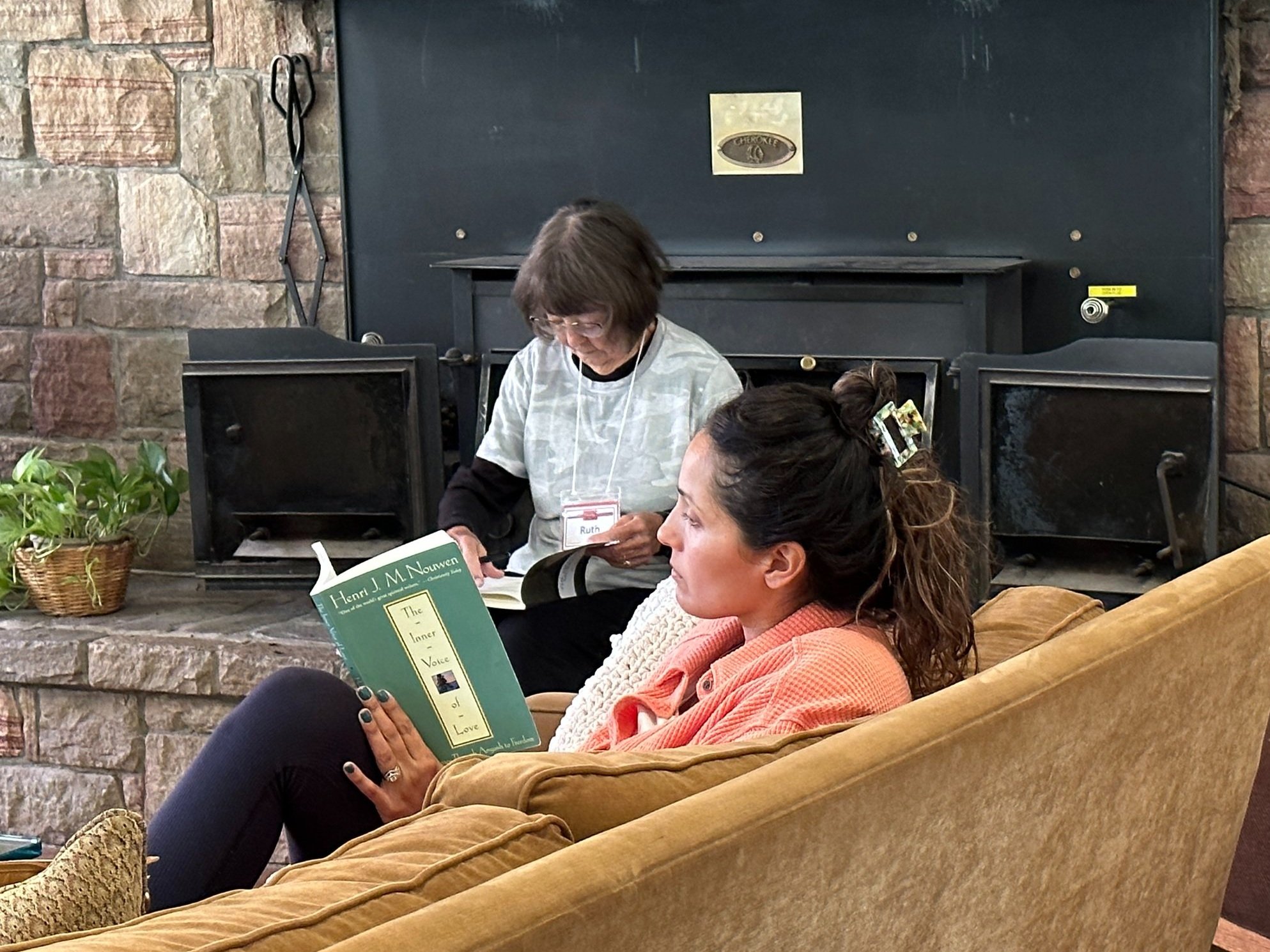Embracing Diversity on Teams and in Small Groups
Leading Diverse, Multi-Cultural and Inter-Generational Teams and Small Groups
We want to take advantage of the full range of experiences and skills that reside in our teams and be sure that our small groups are safe for all women.
This means inviting difference, not fearing it.
It means struggling to understand one another.
It means being aware of our own cultural preferences and the preferences of others and developing a heart to see things from different perspectives.
What are the ways we will be different from the women we meet, serve alongside, and minister to?
Age
Caregiver status
Communication styles
Denominational background
Economic Class
Educational background
Ethnicity
Family status (birth order, if women are married, parents, widowed, single, divorced)
Geographic location
Group identity/affiliations
Languages spoken
Physical abilities and strengths
Thinking styles
Work experience
We aspire to love each person well and treat each other with grace and respect because this is what Jesus has done for us.
Practical Ways to Be Intentionally Inclusive
We will need to help each other to see things from each other’s perspective. Paul writes to the Philippians that instead of being motivated by what is important to us, “each of you should, in humility, be moved to treat one another as more important than yourself. Each of you should be concerned not only about your own interests but about the interests of others as well” (Phil 2:2-4). He goes on to write that our attitude toward each other should model Jesus’ attitude when he gave up everything, completely emptied himself and died on the cross. So, as we learn to lead diverse teams and small groups, we are following in the way of Jesus.
Greet everyone with the same exuberance.
Know that women may be watching to see if they are truly welcome at your event. They will notice if they are welcomed as others are. Be sure that everyone experiences the same warm greeting that nonverbally communicates, “You belong here.” This can be challenging in a group where some women coming are close friends and others coming are meeting people for the first time.
During the first hour, be sure everyone on the team is communicating, “Welcome!” If you are too busy running around putting out fires and dealing with details, you may be communicating that people are not welcome.
Names are Important
Ask what name people would like on their name tags.
Listen and learn how to correctly pronounce names. If 2 names are given ask if they want to use both names always (ex. Jo Bell, Emily June).
Getting Comfortable in Small Groups
As the group begins, invite women to share their conversion stories. This helps to build a common identity and fosters inter-generational and multi-ethnic friendships based on our unity in Christ.
Make sure everyone is given time to talk in their small group. As a leader, don’t rely on the same person to answer all of your questions. Intentionally seek to hear from everyone.
Talk about giving silence after a person talks, to allow space for another person to begin to share. Ask if it's okay to call on people to share.
Honor Cultural Differences
Recognize people may have snack preferences. Ask when they register what their favorite snacks are…and include them in your shopping list (ex. Some women may love chocolate M&Ms, while others love seaweed or tangerines or black licorice.)
Ask about favorite songs for worship and musicians/bands. Use them. Have a playlist that includes them running before or after group sessions.
Have a multi-cultural commentary so you become familiar with how various cultures interpret and apply Scripture. Read Reading While Black by Esau McCaulley.
Pay Attention to Advertising
Be sure to look at the photographs and visual cues you are using when you advertise your event. What do your photographs and time of the event say about who is welcome?
Advertise where women of color and younger women will see the advertisement. To do this, you need to know their online and reading patterns. Ask people where the best places are to advertise to reach their demographic.
Value the Contributions of Others
The way you’ve always done something isn’t the only right way to do it. It’s not even the neutral way to do it. Be open to new ways and be flexible.
Learn from Each Other
Create inter-generational, multi-ethnic education opportunities where women can get to know each other and hear each other's stories. We tend to sit with our friends, so be intentional to mix the group at times, so that small groups represent the diversity of the whole group.
How To Connect With Younger Women
from the research of Dr. Julie Smestad
Young leaders bring a fresh perspective, energy and creativity. Actively initiate with them. Actively invite them to serve. Value them. Listen to their ideas. Rely on young leaders to inform the decisions the group is making. Help them to develop a sense of “ownership.” They are “us.” (Don’t shut down their ideas or pull up a policy that says why you can’t do something. Listen well and see if you can find a way.) All of us like to belong. This is certainly true of young women. They like to have fun, have a good laugh, and spend time together.
Affirm and mentor young leaders and cheer them on as they take on responsibility, develop confidence and grow spiritually. This will require that older women provide space for them to make mistakes, which is more important than appearing to be perfect. As older women, agree to reflect to each other when you hear criticism implied in what is said among yourselves.
Include young women in the planning process of your events. They want to know there is a point to what they are doing. They want to make a difference in what they do–it is a driving factor in life for them. Don’t give them superficial or minimal tasks because you are afraid they won’t follow through.
Don’t call anything “women’s ministries.” It connotes something that young women feel is not for them (a perfect women’s tea, with a perfect speaker). They may filter out opportunities if they think it is associated with “women’s ministries.” It feels irrelevant to meeting their needs.
Young women are very experiential in nature and like multi-faceted and hands-on experiences (ex. nailing on a cross, use of candles, fabrics, art).
Young women want to be seen and known. So, when you are working together on a team, ask questions like:
What role would you love to do (whether it exists or not)?
What do you need from me to do your best work?
What is your biggest frustration and what can I do to help you deal with it?
What have you been trying to tell me that I’ve not been hearing?
How would you like to be recognized?
Are you satisfied with your current work? What would you like to change? What is the best part of your work?
Young women hate anything inauthentic–so admit your mistakes. This can be a challenge. Older women want to look good. Their generation was taught that they have to have their life together in order to “be a good witness and not cause others to stumble.” Yet, the younger women want to hear our mistakes and how we navigated the challenges we faced in life.
Host talks on topics that matter to younger women. Include a variety of people who have different perspectives. Use panel discussions. Younger women are drawn to experiences that provide opportunities to walk through doubt and provide help for navigating difficult cultural issues.
Host an informal lunch that allows friendships to begin. During the lunch, be intentional to create space for friendships to form. Help older women learn to authentically share their life stories in vulnerable ways in order to reduce the image that they are superior and help them to be encouragers who can come alongside others. Younger women ask themselves, “What would other people I know do in this situation?” and they’ll remember the stories that the older women have told.
Recognize that typically 50 to 70-year-old women want control, but instead of controlling things, they need to mentor. However, mentoring is different for younger women than the mentoring model used in the 1980s and 1990s. Young women want to be mentored (which means they want to be encouraged, affirmed, cheered on) as they lead.
[1] Insight from Dr. Julie Smestad, doctoral dissertation: Change process for Traditional Churches to Spiritually Form Millennials While Retraining Older Generations, Smestad, May 2020, Dallas Theological Seminary.
Watch a 30 minute presentation by Dr. Julie Smestad (Masters of Arts Biblical Studies and Doctor of Education Ministry from Dallas Theological Seminary) on building spiritually forming cultures across generations.


